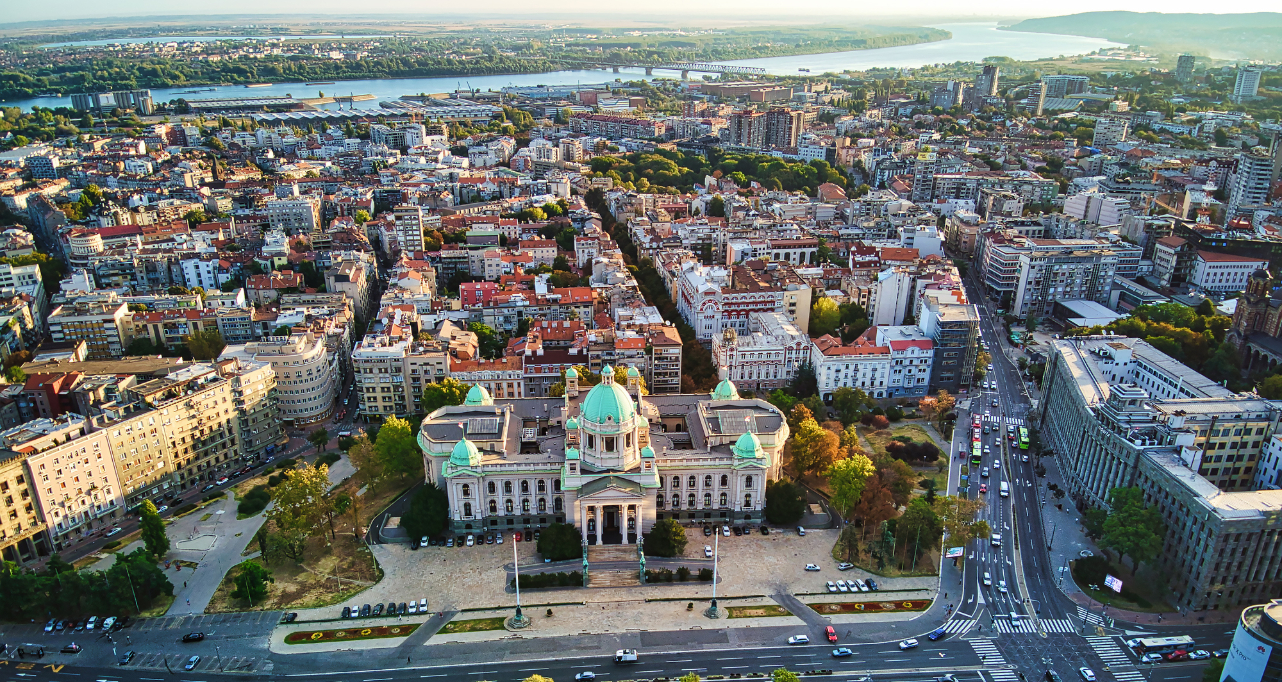Who we are
Overview: about the EBRDWho we are
Overview: about the EBRD
Our story
Learn about the EBRD's journey to investing more than €220 billion in over 7,800 projects.
- Our background and history
- Our organisation
- Our values
- Strategies, governance and compliance
- Project accountability
What we do
Overview: how the EBRD operatesWhat we do
Overview: how the EBRD operates
How we deliver systemic impact
Across three continents, the EBRD supports the transition to successful market economies.
- Where we work
- Products and services
- Sectors we work in
- Our projects
- Focus areas and initiatives
- Economic research
Work with us
Overview: how you can work with the EBRDWork with us
Overview: how you can work with the EBRD
What we offer for businesses
We draw on three decades of regional knowledge and financial expertise to tailor our products and approaches to each client's needs.
- Businesses
- Investors
- Donors
- Researchers
- Civil Society
- Alumni
- Nominee Directors
- Trade finance
- Careers
EBRD supports Serbia in transition to clean heating
Author: Jelena Pajic

- EBRD extends €50 million loan to Serbia to help reduce CO2 emissions
- Funds will finance investments in sustainable heat sources by public entities across the country
- Loan will also support district heating connections and decrease reliance on energy imports
The European Bank for Reconstruction and Development (EBRD) is providing a loan of up to €50 million to Serbia for the decommissioning of environmentally harmful boiler houses in six self-governing municipalities and to enable investments in sustainable heat sources. The loan is being provided to Serbia’s Ministry of Finance and will be disbursed by the Ministry of Environmental Protection to public entities across the country.
As well as supporting spending on heat pumps and industrial and urban-waste heat systems, the loan will facilitate connections to district heating networks where feasible, energy-efficiency retrofitting of buildings and the installation of thermostatic valves to reduce energy demand.
The investment will enable significant reductions in emissions of CO2 and other harmful air pollutants such as sulphur dioxide, fine particulate matter, carbon monoxide and soot. It will also decrease Serbia’s reliance on imported energy sources, reduce overall energy costs and drive decarbonisation of the building sector, while improving the sustainability and comfort of public buildings nationwide.
The investment was developed as part of the EBRD’s Renewable District Energy in the Western Balkans technical assistance programme financed by the Austrian government, which promotes the use of renewable energy sources in district heating and cooling systems. The Swedish International Development Cooperation Agency also provided financial support for the project.
The loan agreement was signed by Siniša Mali, Serbia’s First Deputy Prime Minister and Minister of Finance, while the project agreement was signed by Sara Pavkov, Serbia’s Minister of Environmental Protection. Both agreements were signed by Matteo Colangeli, EBRD Regional Head of the Western Balkans, on behalf of the Bank.
Mr Colangeli said “This loan marks a vital step towards a cleaner, more sustainable future for Serbia and its citizens. By reducing air pollution across many Serbian cities and decreasing reliance on imported energy, the project will lower energy costs for public institutions while improving the comfort and sustainability of buildings nationwide. Supporting the phase out of harmful boiler houses and investing in modern, renewable heating solutions such as heat pumps, solar thermal, biomass and photovoltaics, this initiative will accelerate Serbia’s transition to a low-carbon economy and enhance energy independence across multiple local communities.”
Ms Pavkov said: “Today is a big and important day for me as the Minister of Environmental Protection, because we are opening a new chapter in the field of air protection. Based on the agreements we have signed, we will invest an extremely large amount of money, €50 million, targeted at the cities we have mapped as those with the largest excesses of harmful emissions. This is important above all for the citizens of Belgrade, Niš, Valjevo, Zaječar, Novi Pazar and Smederevo, where this series of projects will be implemented. These projects are the crowning achievement of many years of demanding work and signal the start of a phase where we can intensify the fight for cleaner air, which is one of our main priorities and which our citizens deserve. We will fight with all our strength to achieve this goal.”
The EBRD is the leading institutional investor in Serbia, having invested more than €10 billion through 379 projects to date. The Bank’s focus in Serbia is on private-sector competitiveness, the green economy transition and sustainable infrastructure.
